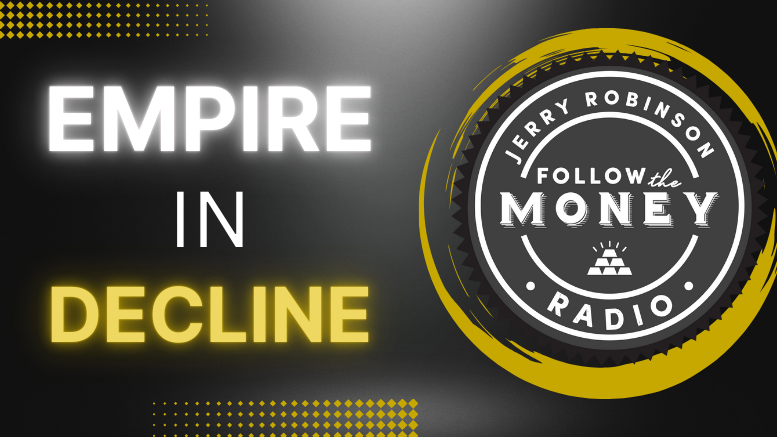by Jerry Robinson, FTMDaily.com Editor-in-Chief
Over the weekend, the Bank for International Settlements (BIS) — also known as “the central bank to the central bankers– released its annual report with a call for global central banks to bring their unprecedented monetary policy efforts to a halt. The report explains that while the $15 trillion of quantitative easing that has been unleashed upon the global financial system by central banks like the Federal Reserve, the Bank of England, the ECB, and more recently, the Bank of Japan, over the last four years was enough to stave off a complete financial collapse, it alone cannot spark a long-term sustainable economic recovery.
According to BIS chief economist, Stephen Cecchetti:
“It is becoming increasingly clear that central banks cannot do ‘whatever it takes’ to return still-sluggish economies to strong and sustainable growth… So far, continued low interest rates and unconventional monetary policies have made it easy for the private sector to postpone deleveraging, easy for the government to finance deficits, and easy for the authorities to delay needed reforms in the real economy and in the financial system.”
In essence, the BIS is encouraging global central banks to tone down their aggressive monetary policies in order to make room for fresh attempts at fiscal policy. After all, monetary policy is inefficient without corresponding fiscal policies. These extraordinary monetary policies, including massive cuts to interest rate targets (to zero) followed by the unprecedented expansion of central bank balance sheets of government debt, were originally enacted to provide breathing room for Western political leaders to pass needed reforms to the financial system. But as usual, politicians have taken advantage of easy monetary policies and remain reluctant to risk their popularity by cutting and/or reforming failing programs.
Here’s a synopsis of the BIS annual report:
“Six years ago, in mid-2007, cracks started to appear in the financial system. Little more than a year later, Lehman Brothers failed, bringing advanced economies to the verge of collapse. Throughout the ensuing half-decade of recession and slow recovery, central banks in these economies have been forced to look for ways to increase their degree of accommodation. First they lowered the policy rate to essentially zero, where it has been ever since in the United States, United Kingdom and euro area. (And where it has stood in Japan since the mid-1990s!) Next, these central banks began expanding their balance sheets, which are now collectively at roughly three times their pre-crisis level – and rising.
Originally forged as a description of central bank actions to prevent financial collapse, the phrase “whatever it takes” has become a rallying cry for central banks to continue their extraordinary actions. But we are past the height of the crisis, and the goal of policy has changed – to return still-sluggish economies to strong and sustainable growth.
I disagree that the West is “past the height of the crisis.” If anything, we have only delayed the pain that inevitably visits debt addicts.
The report continues:
“Can central banks now really do “whatever it takes” to achieve that goal? As each day goes by, it seems less and less likely. Central banks cannot repair the balance sheets of households and financial institutions. Central banks cannot ensure the sustainability of fiscal finances. And, most of all, central banks cannot enact the structural economic and financial reforms needed to return economies to the real growth paths authorities and their publics both want and expect.
What central bank accommodation has done during the recovery is to borrow time – time for balance sheet repair, time for fiscal consolidation, and time for reforms to restore productivity growth. But the time has not been well used, as continued low interest rates and unconventional policies have made it easy for the private sector to postpone deleveraging, easy for the government to finance deficits, and easy for the authorities to delay needed reforms in the real economy and in the financial system. After all, cheap money makes it easier to borrow than to save, easier to spend than to tax, easier to remain the same than to change.
Yes, in some countries the household sector has made headway with the gruelling task of deleveraging. Some financial institutions are better capitalised. Some fiscal authorities have begun painful but essential consolidation. And yes, much of the difficult work of financial reform has been completed. But overall, progress has been slow, halting and uneven across countries. Households and firms continue to hope that if they wait, asset values and revenues will rise and their balance sheets improve. Governments hope that if they wait, the economy will grow, driving down the ratio of debt to GDP. And politicians hope that if they wait, incomes and profits will start to grow again, making the reform of labour and product markets less urgent. But waiting will not make things any easier, particularly as public support and patience erode.
Alas, central banks cannot do more without compounding the risks they have already created. Instead, they must re-emphasise their traditional focus – albeit expanded to include financial stability – and thereby encourage needed adjustments rather than retard them with near-zero interest rates and purchases of ever larger quantities of government securities. And they must urge authorities to speed up reforms in labour and product markets, reforms that will enhance productivity and encourage employment growth rather than provide the false comfort that it will be easier later.”
Read the complete BIS annual report here.






